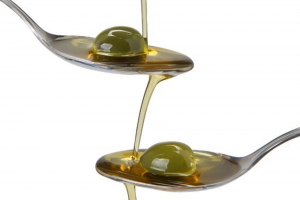
Olive oil is known for its antioxidant properties and restricting effect on free radicals. In the treatment of cancer too, olive oil plays an important role, since studies have shown that regular ingestion of olive oil can prevent and combat tumour formation. People in Mediterranean countries suffer from cancer less than the populations of northern Europe, which is surely also to do with nutrition, which often begins with olive oil in the kitchen.
The most important antioxidants in olive oil can kill cancer cells in under one hour, without attacking healthy cells in the process. Scientists at Rutgers University and at Hunger College showed this in a study.
Many further scientific studies have been devoted to the subject of olive oil and what healthy advantages the consumption of this oil offers. Some of these studies focused particularly on the effect of olive oil in the case of cancer. An interesting research study came from Greece. In the survey, 50,000 patients were examined. Data from the different countries were compiled and contrasted with one another. The cancer patients had different forms of cancer, such as breast cancer, prostate cancer and further kinds of cancer, which are described in the study. It was investigated whether the intake of olive oil made a difference in cancer treatment and the prevention of tumours. It soon became clear that healthy diet and the consumption of olive oil made a great difference and that one could, in fact, reduce the risk of cancer with its inclusion. Tumour development can not only be prevented but also be combatted.
In 2010, researchers from Universitat Autònoma de Barcelona also proposed in a study, that olive oil could help prevent cancer. As was concluded by the scientists, olive oil caused a change in the signal pathway of breast-cancer cells, which led to apoptosis and prevented deterioration of the DNS in healthy cells. In the year 2016, another study began, with positive results, in the outcomes of consuming olive oil in relation to risk of suffering from breast cancer Spain. These findings are especially important since a high-fat diet is counted among the respective risk factors. Olive oil and other “healthy” fats could act in a protective capacity, in this regard.
Olive oil contains many phenolic compounds and those antioxidants which lend the oil its strong, bitter flavour. According to a study published in 2005 the strongest of these compounds, such as Hydroxytyrosol and Oleuropein, could protect from serious illnesses including cancer, render destructive micro-organisms in the body harmless and regulate the immune system.
It should nevertheless be taken into account that the majority of studies are only performed “in vitro” and that results are otherwise only to be achieved with the greatest of care, yet by all means deserve serious consideration.



